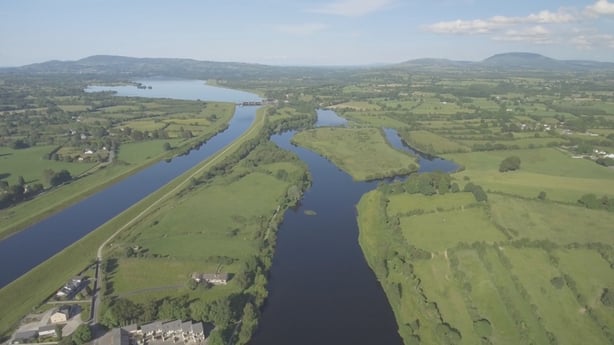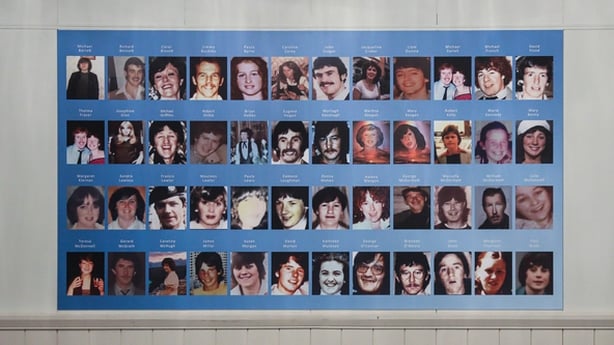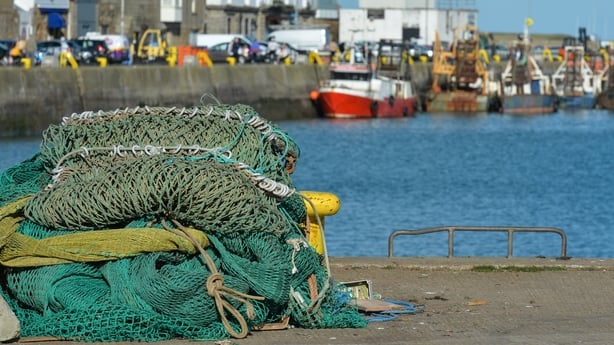The Cabinet has approved in principle a plan for the Water Supply Project, Eastern and Midlands Region.
Under the proposal, treated water will be piped 170km through counties Tipperary, Offaly and Kildare to a reservoir at Peamount in Dublin, connecting into the greater Dublin area water supply network with capacity to provide water to communities along the route.
The project proposes to take just 2% of the average flow of the River Shannon.
It is estimated it will cost between €4 and €6 billion to complete.
Minister for Housing, Local Government and Heritage, Darragh O'Brien said: "This marks an important first step in what is a multi-billion euro project which will ensure a sustainable water supply for our country both now and into the future."
He said Uisce Éireann "could now progress the project through the remaining Infrastructure Guidelines approval gates including the submission of a planning application to An Bord Pleanála in 2025".
Uisce Éireann CEO Niall Gleeson said: "The Water Supply Project is critical for the future of our country. By delivering a secure, climate-proof supply of water for up to 50% of the State’s population it will facilitate increased demand for housing, enable sustainable economic growth and support competitiveness across the Region.
"Crucially it will also help us meet the challenges of climate change by diversifying our water supplies to ensure safe, resilient water services for communities across the region, and reduce the vulnerability to drought and other extreme weather events," he said.

Electoral Reform
The Cabinet will discuss the General Scheme of Electoral (Amendment) Bill 2024.
It will provide for an agreement to be made between An Coimisiún Toghcháin and Coimisiún na Meán to facilitate the sharing of information.
It also confirms that An Coimisiún Toghcháin may communicate with the public in relation to matters including the electoral process, misinformation, disinformation or the use of manipulative or inauthentic behaviour.
The legislation will ensure that its communications are not restricted solely to an electoral period.
Stardust

Taoiseach Simon Harris will update the Cabinet on the actions taken by the Government since the Stardust inquest was delivered.
The Taoiseach will confirm Ms Sara Moorhead SC has been appointed as counsel to engage on behalf of the State with the legal representatives of the families of the victims of the Stardust fire on redress.
Counsel will commence engagement with the legal representatives of the families this week.
A further memorandum will be brought to Government when agreement has been reached.
Special Needs Assistants
Minister for Education Norma Foley is bringing a memo to the meeting with Minister of State Hildegarde Naughton on the first Special Needs Assistants Workforce Development Plan.
The memo will update the Cabinet on the publication of a national survey of SNAs and the intention is to have the SNA Workforce Development Plan completed by September 2025.
There are currently over 21,000 special needs assistants, as well as 14,600 special education teachers and 4,750 teachers in special schools and special classes.
Seafood Industry Support Scheme

Minister for Agriculture Charlie McConalogue will update his Government colleagues on support schemes for the seafood industry.
These all come under the €258 million European Maritime, Fisheries and Aquaculture Fund Seafood Development Programme.
The minister will launch a number of schemes over the coming weeks, administered by Bord Iascaigh Mhara.
The schemes include a Sustainable Fisheries Scheme, Inshore Fisheries Scheme and Seafood Processing Capital Investment Scheme.
The support schemes enable sustainable fisheries, the blue economy, and healthy, secure, clean and sustainably managed seas and oceans.
The Inshore Fisheries Scheme will support small-scale coastal fishing vessels, under 12 metres in length, who do not use towed gear.
The Sustainable Fisheries Scheme will support all registered fishing vessels other than the small-scale coastal fishing vessels.
This will fund equipment such as more selective gear that reduces catches of juvenile or species that are over the fishing quota.
The Seafood Processing Capital Investment Scheme will provide capital investment in the seafood processing sector, which employs approximately 4,000 people in rural coastal communities.






